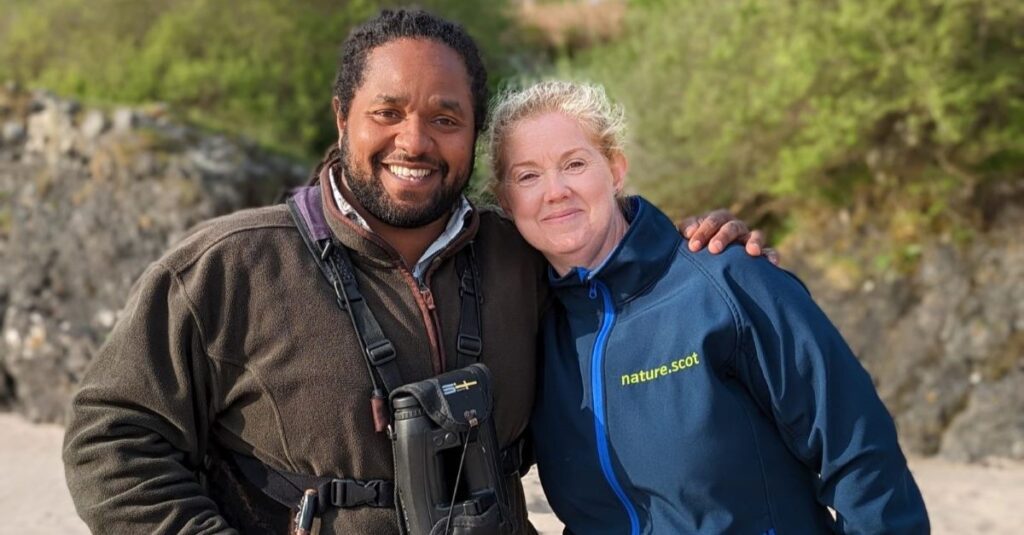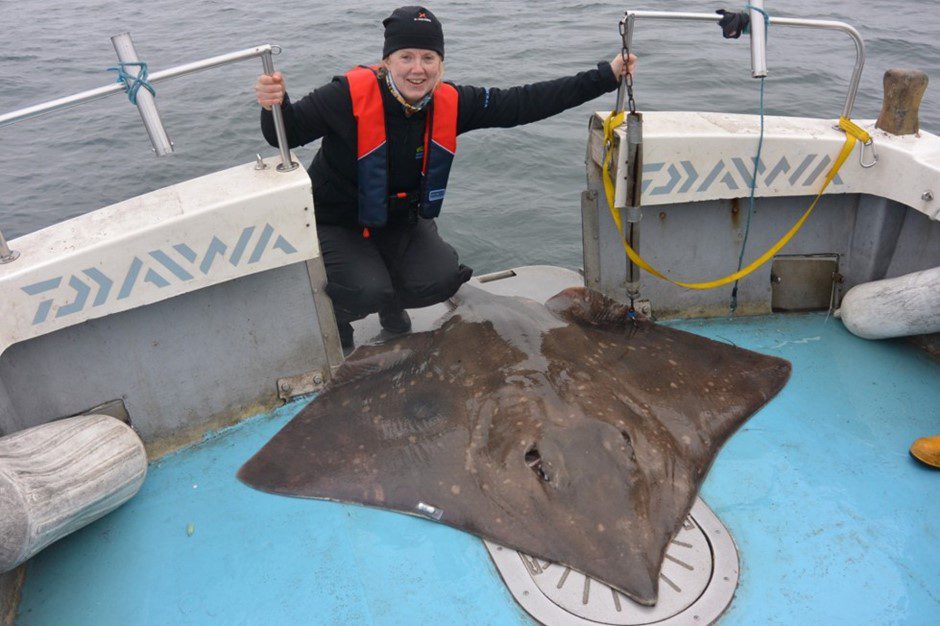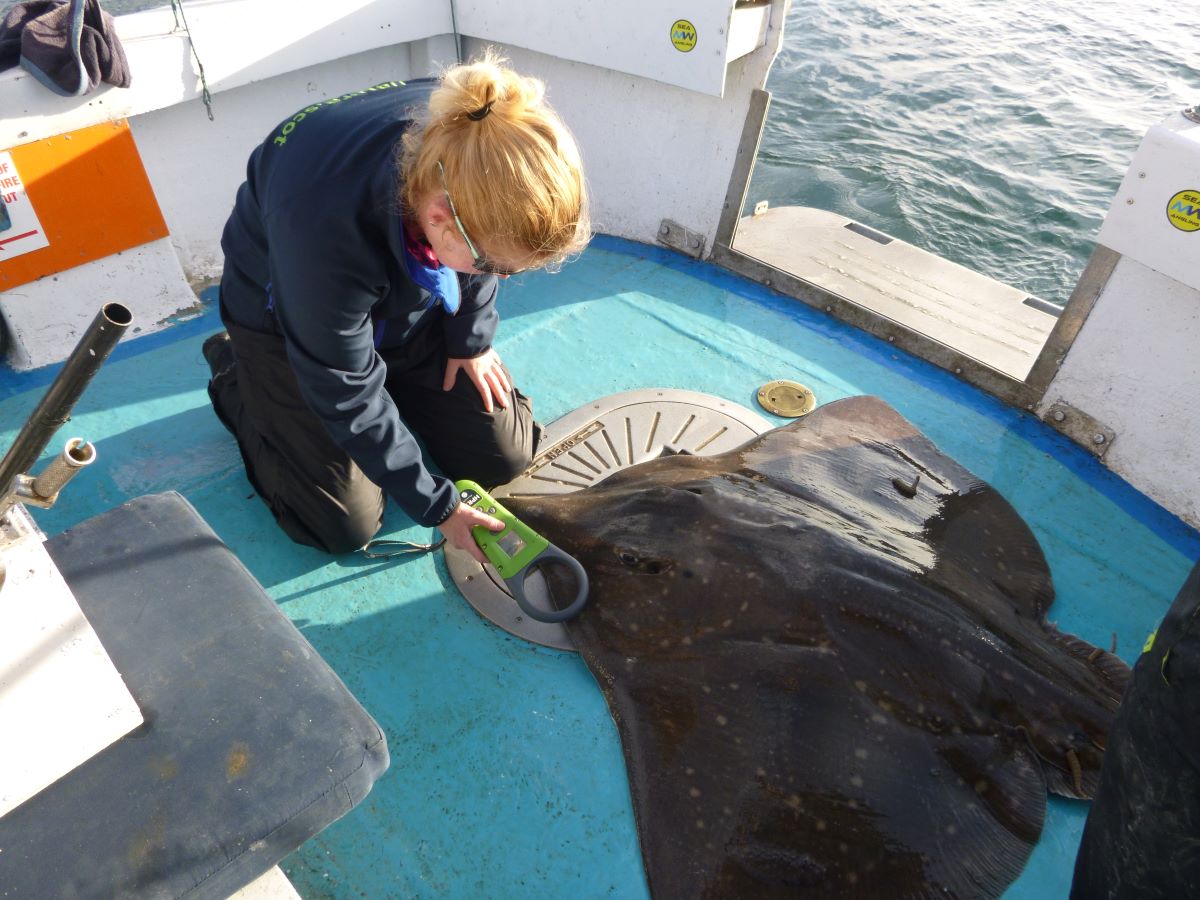
Life With NatureScot: ‘The only way we are going to counter climate change is by working together’
Operations Officers Jane Dodd on the marine life around Arygll, her work with the flapper skates and the impact of climate change on our seas.
When I was a child, my dad and my grandad would take me crabbing in rockpools during beach holidays and I’ve been fascinated by marine life ever since. My uncle was a scuba diver and into marine biology and archaeology, and I was always fascinated by the things he found. When I was about six, I visited an aquarium and I knew I needed to learn to dive. I learned to scuba dive in the UK and loved it. But the first time I put my head under the water with a diving mask on to see coral reefs I knew conservation was for me.
I studied marine biology and ended up in Oban doing work experience at the Scottish Association for Marine Science and fell in love with the west coast of Scotland. After a Master’s degree in Aberdeen, I managed to get a bursary to study for a PhD back at the marine lab in Oban.
‘With climate change we are seeing more non-native species on our coasts’
I wanted to travel so I joined a Royal Geographical Society marine conservation project in Mauritius. After a two-year baptism of fire learning about politics and stakeholder engagement while working on conservation projects, I came home. I visited Oban to see friends and find out if there were any jobs. NatureScot were advertising for someone to help manage the marine Special Areas of Conservation near Oban. I got the job and I’ve been here ever since – almost 25 years now.
I start around 8:30 or 9am. The first thing I do is check my messages and my diary. I try to stay current with the technology, but I do have an old-fashioned paper ‘to do’ list which I will check next and then get on with my work.

Jane witnesses a skate egg hatching and was part of the baby skate’s release.
‘I have been very lucky to experience some amazing things’
With climate change we are seeing more non-native species occurring around our coasts. That is concerning, especially as they are starting to appear where they will threaten special habitats and species, and it’s very difficult to eradicate non-native species in the marine environment.
We are generally pushing at an open door because of climate change and the biodiversity emergency, but sometimes I get frustrated and anxious at the pace of change. I counter this by volunteering on conservation projects including volunteering for Orca whale and dolphin spotting on the Cal Mac ferries out of Oban. Meeting positive, like-minded people who are willing to give up their time for the environment gives me hope for the future. I think the only way we are going to counter climate change is by working together.
The flapper skate is my favourite animal. A flat shark, it is critically endangered and can grow to 2.5m long and 2m across. The area just off Oban – Loch Sunart to the Sound of Jura MPA – is designated for their protection thanks to local anglers who tagged skate starting in the 1970s and proposed the site in 2014. NatureScot monitors the site with the continued help of local anglers who tag skate and take photos of them. In 2018, we were able to show that the skate’s spot pattern is unique, like a fingerprint, and can be used to identify recaptures of the same animal, and our online database of flapper skate known as Skatespotter was born.

Flapper skate expert Jane manages skate monitoring in the Loch Sunart to the Sound of Jura MPA.
In 2020 I was lucky enough to witness a flapper skate hatch in captivity, a world first for the species. Little is known about the biology of the flapper skate. It lives in deep water and is difficult to study, but more recently we have discovered the incubation time of their eggs, which is 18 months.
I have been very lucky to experience some amazing things. Seeing the skate egg hatch and releasing the baby skate was very special. I have also joined a basking shark tagging field work out at Coll and Tiree and observed more than 20 sharks around our boat at one time at sunset, which was amazing.
I generally finish around 5pm when I take my dog for a walk to decompress. I feel lucky to live in such a beautiful area and be able to enjoy the outdoors.
Read more from the Life With series here.
Subscribe to read the latest issue of Scottish Field.
TAGS

